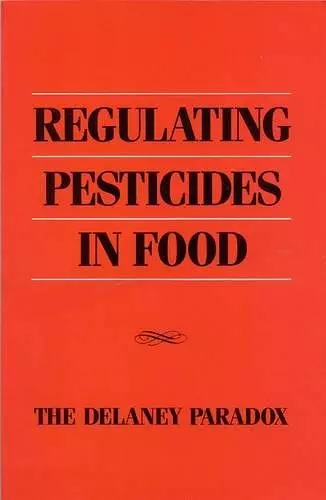Regulating Pesticides in Food
The Delaney Paradox
National Research Council author Board on Agriculture author Committee on Scientific and Regulatory Issues Underlying Pesticide Use Patterns and Agricultural Innovation author
Format:Paperback
Publisher:National Academies Press
Published:1st Feb '87
Currently unavailable, our supplier has not provided us a restock date

Concern about health effects from exposure to pesticides in foods is growing as scientists learn more about the toxic properties of pesticides. The Delaney Clause, a provision of the Food, Drug and Cosmetic Act, prohibits tolerances for any pesticide that causes cancer in test animals or in humans if the pesticide concentrates in processed food or feeds. This volume examines the impacts of the Delaney Clause on agricultural innovation and on the public's dietary exposure to potentially carcinogenic pesticide residues. Four regulatory scenarios are described to illustrate the effects of varying approaches to managing oncogenic pesticide residues in food.
Table of Contents- Front Matter
- Executive Summary
- 1. Introduction
- 2. The Current System: Theory and Practice
- 3. Estimates of Dietary Oncogenic Risks
- 4. The Scenarios and the Results
- 5. Comparing the Impact of the Scenarios
- 6. Pesticide Innovation and the Economic Effects of Implementing the Delaney Clause
- Appendix A: Legislative History of the Pesticide Residues Amendment of 1954 and the Delaney Clause of the Food Additives Amendment of 1958
- Appendix B: Analytical Methodology for Estimating Oncogenic Risks of Human Exposure to Agricultural Chemicals in Food Crops
- Appendix C: Case Studies of the EPA's Application of the Delaney Clause in the Tolerance-Setting Process
- Appendix D: Pesticide Information
- Appendix E: Survey of Pesticide R&D Directors: How Do Current Laws Affect Agricultural Pesticide Research Productivity?
- Index <
ISBN: 9780309037464
Dimensions: unknown
Weight: unknown
288 pages